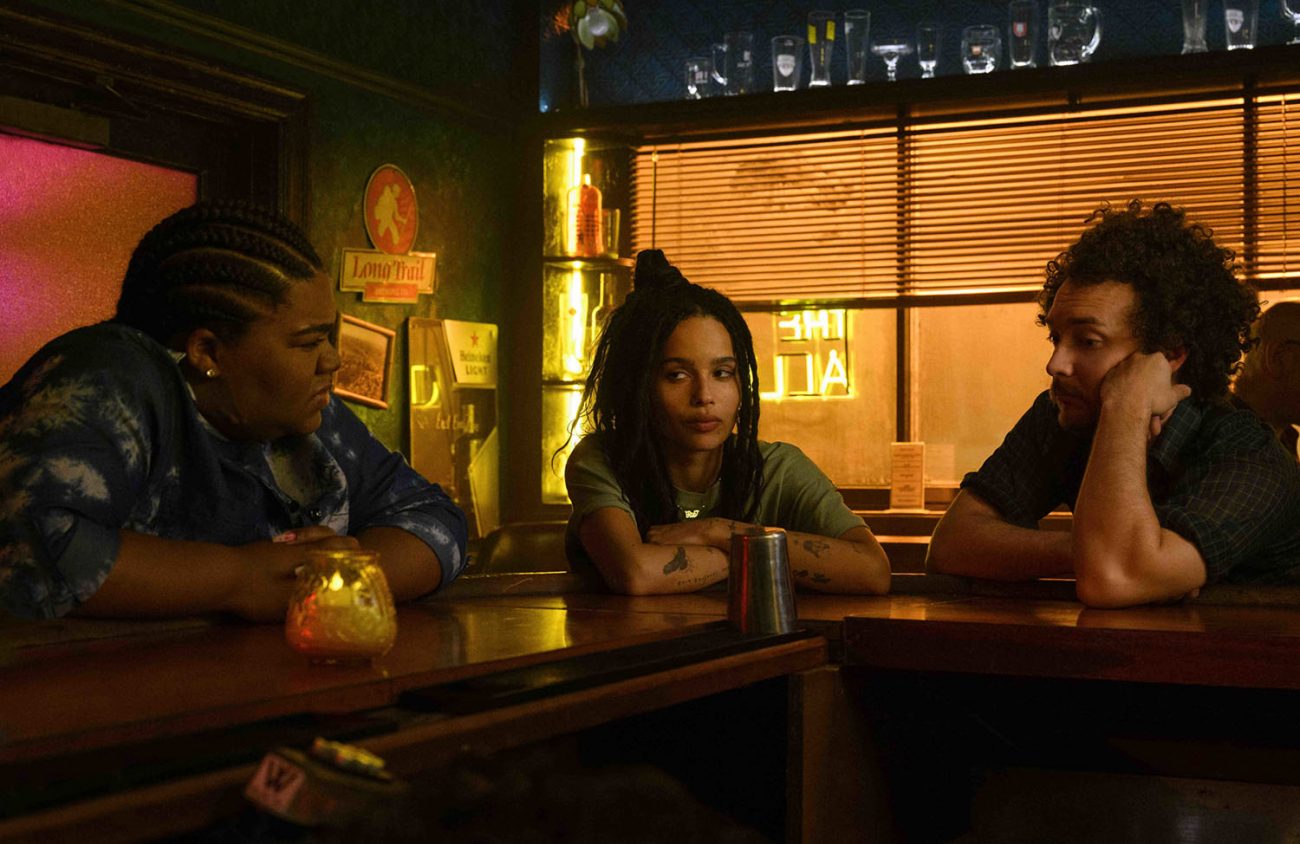Adapted from the Nick Hornby book of the same name, High Fidelity found success as a film 20 years ago featuring John Cusack as Rob, a role that garnered him a Golden Globe nomination, and a supporting cast that featured Jack Black and Zoë Kravitz’s own mother.
In Hulu’s new version of the tale, the world has changed. The fourth-wall breaking Robyn “Rob” Brooks (Zoë Kravitz) owns a record store that she runs with her best friends more like a personal musical playground than as a business. When Rob’s ex moves back to the city with a new girlfriend after calling off their engagement the previous year, she confronts her past relationships. As she explores her top-five greatest heartbreaks of all-time, Rob looks for answers as to why her love life is a wreck and what it may reflect about her.
Hulu’s High Fidelity series offers the story of the burgeoning New York adult with a messy love life for people of different sizes, colors and sexualities. That’s a story that HBO’s Girls attempted but only really achieved for an audience of young white women.
Early on, High Fidelity is often hampered by being too faithful as an adaptation. In the pilot particularly, it’s hard to forget what Cusack and Black did so well in their performances as you watch new actors deliver the same dialogue and jokes.
Fortunately, the show expands on the characters and their respective stories so that the actors are given a fair shot at going beyond a simple remake. Some of the bits from the original are reworked and updated to great results. In one instance the three mull over whether they should sell a Michael Jackson record to a customer in light of recent controversies and allegations. It’s a fantastic detail that stays true to the attitude of the original while tweaking it to be fresh.
High Fidelity makes a few key changes in this interpretation, the main one being to cast Zoë Kravitz, the daughter of Lenny Kravitz, who also serves as executive producer. The choice to have Kravitz, a mixed-race woman, instead of a white man is a creative choice that benefits that show. It further separates itself from the film and better reflects a more diverse audience.
Where Cusack’s Rob was rougher around the edges, more sarcastic, bitter and self-centered (which he did fantastically); Kravitz is more relatable. She is emotionally immature, unhappy and overly invested in the life she had and not the one that she has. Kravitz isn’t a revelation, and the show isn’t either, but she delivers a good performance.
The show’s real strength is in its supporting cast. Cherise (Da’Vine Joy Randolph) dreams of starting a band and making her own music but faces rejection at every corner, like when a person interested in her sign looking for bandmates leaves after seeing her, or when a singer’s manager is quick to shut down her inquiries about working together.
Following up Black, who played this character in the film, has challenges; his brand of comedy is so distinct that it would be easy for this role to become an impersonation in his shadow. But the storyline, which was done for laughs in the film, is developed as a story of self-doubt and insecurity that has a beautiful payoff in the show.
The other member of the trio is Simon (David H. Holmes), a gay man who dated Rob before coming out, and gets his own fourth-wall-breaking episode to explore his own top-five heartbreaks. In it he gets to take the spotlight and explore his own insecurities and relationship woes which typically take the backseat to Rob’s. It’s a lovely change of pace and an exciting idea for future seasons to give other characters their own episodes.
High Fidelity is a noble effort at reworking a story for a new generation and exploring the modern dynamics of romantic relationships. The series format allows breathing room for stories to expand, and for supporting characters to explore their own issues.
The show takes time to get on track and deliver more than a straightforward remake, but eventually offers its own story and characters with plenty of room to grow.
